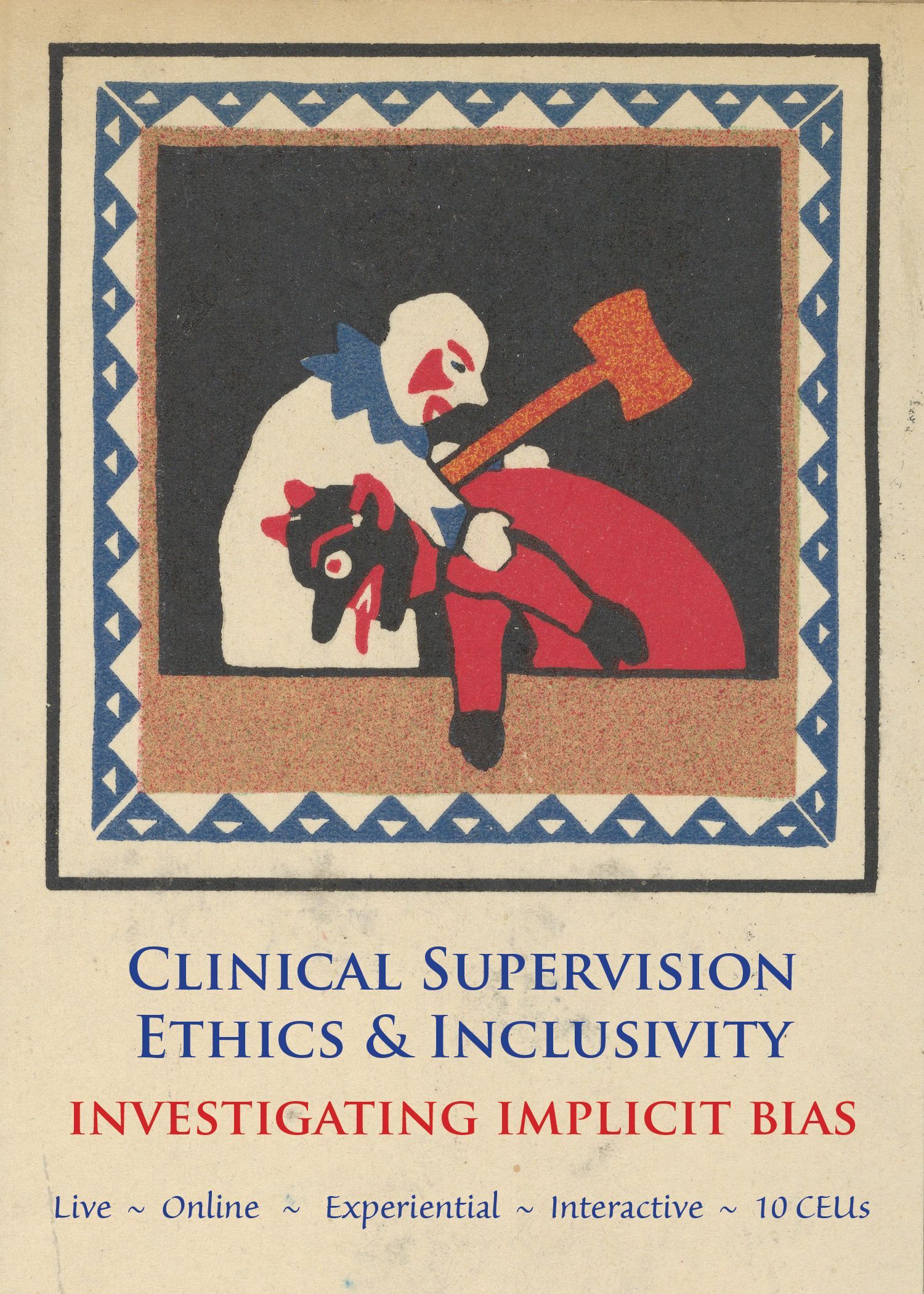Clinical Supervision Ethics & Inclusivity
investigating implicit bias
10 CEUs for Mental Health Professionals
Course Description
As professional gatekeepers, clinical supervisors embody hierarchical power. Given our human need to categorize experience, ethical use of this power requires consistent attention to our equally human unconscious biases. Compounding impacts such as intergenerational trauma, social priming, and family-of-origin conditioning too easily blindside our professional intentions, responsibility, and actions.
The mind creates the abyss; the heart crosses it.
In this highly interactive,experiential training, we will investigate our past experiences of implicit bias as supervisors and supervisees. Within carefully guided multimodal exercises, we will embolden leaps of insight as we walk in one another's shoes. Extracting from this collaborative work, we will collate a list of approaches that: inhibit actions propelled by implicit bias; deepen inclusivity; and facilitate depth of learning within the supervisory relationship. Use of art materials, self-reflective writing, practices that enhance compassion, role-playing, video-viewing, and class discussions will guide our collaborations.
Katherine Paras, M.S., ATR-BC, LPAT is a designated Clinical Supervisor and a Continuing Education Provider certified by the New Mexico Counseling and Therapy Practice Board (NMCTPB). The New Mexico Board of Social Work Examiners accepts CEU classes approved by NMCTPB. This course is designed to meet the current NMCTPB requirement: "All licensees who are providing supervision must complete nine (9) CEUs of supervision," six (6) of which are required to be in Clinical Supervision Ethics. Paras CEUs may also be applicable to licensing boards of other states. It is the responsibility of licensees to stay informed as to their particular licensing board's requirements as they can change from time to time.
CLASS OBJECTIVES
The course will teach the participant to:
1. List three risk factors that trigger implicit bias within supervisory dynamics.
2. Describe one example of how a supervisor's art image made in response to supervisory difficulties can clarify confusing ethical dynamics.
3. Describe the dynamics of automatic processing.
4. List two examples of harm that can result from automatic processing.
5. Identify three approaches that can help to repair damage within the supervisory relationship.
6. Describe three supervisory approaches that can encourage inclusivity.
6. Use ethically guided decision-making skills.
7. Identify three supervisory approaches or techniques that a supervisor can use to inspire deep learning and enhance development of supervises therapeutic skills.
Learn what people experience in classes
Mental Health CEUs
Katherine Paras, M.S., ATR-BC, LPAT is a designated Clinical Supervisor and a Continuing Education Provider certified by the New Mexico Counseling and Therapy Practice Board. Her CEU classes are approved for licensees of NMCTPB and New Mexico Board of Social Work Examiners. CEUs may also be applicable to licensing boards of other states. It is the responsibility of licensees to stay informed as to their particular licensing board's requirements as they can change from time to time.
Registration
EARLY REGISTRATION FEE OF $195
To reserve your place with early registration, payment of $195 must be received by PayPal by March 8, midnight
REGULAR REGISTRATION FEE OF $215
To reserve your place after early registration, payment of $215 must be received by PayPal by March 22, midnight.
LATE REGISTRATION FEE OF $240
To reserve your place after September 30, late payment of $240 must be received by PayPal by March 29, midnight.




